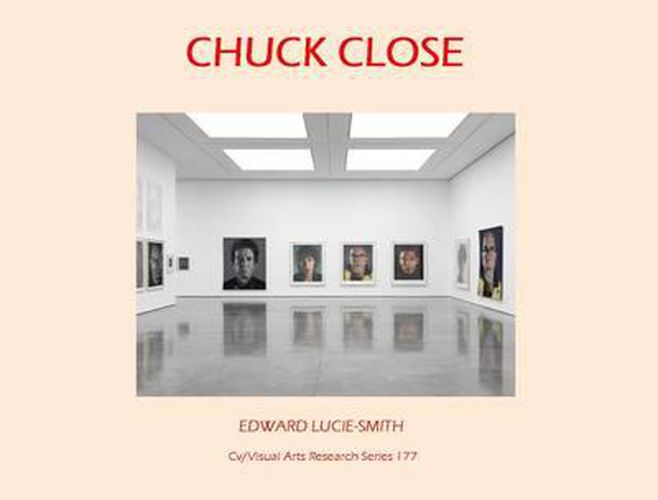Readings Newsletter
Become a Readings Member to make your shopping experience even easier.
Sign in or sign up for free!
You’re not far away from qualifying for FREE standard shipping within Australia
You’ve qualified for FREE standard shipping within Australia
The cart is loading…






This title is printed to order. This book may have been self-published. If so, we cannot guarantee the quality of the content. In the main most books will have gone through the editing process however some may not. We therefore suggest that you be aware of this before ordering this book. If in doubt check either the author or publisher’s details as we are unable to accept any returns unless they are faulty. Please contact us if you have any questions.
Cv/VAR Series 177 publishes a study by the celebrated art historian and writer Edward Lucie-Smith of the leading American artist Chuck Close. Finding his early impetus in the photorealistic works by Richard Estes, as well as the surface shocks of Jackson Pollock’s ‘Tachiste’ paintings, Chuck Close developed his own, highly resolved ‘heads’ (his preferred term to portraits), which are worked on a massive scale. Close is as much preoccupied with process as description, charting an intricate exchange between painting and the pixellated images of his subjects. Despite suffering a disabling spinal aneurism in 1988, the artist has continued to forge a monumental body of work in a variety of media: paintings, drawings, prints and photographs, of potent and original effect. Charles Thomas Chuck Close (born July 5, 1940) is an American painter and photographer who achieved fame as a photorealist, through his massive-scale portraits. Though a catastrophic spinal artery collapse in 1988 left him severely paralyzed, he has continued to paint and produce work that remains sought after by museums and collectors. Close currently lives and works in New York’s West Village and in Bridgehampton, New York. wikipedia.org
$9.00 standard shipping within Australia
FREE standard shipping within Australia for orders over $100.00
Express & International shipping calculated at checkout
This title is printed to order. This book may have been self-published. If so, we cannot guarantee the quality of the content. In the main most books will have gone through the editing process however some may not. We therefore suggest that you be aware of this before ordering this book. If in doubt check either the author or publisher’s details as we are unable to accept any returns unless they are faulty. Please contact us if you have any questions.
Cv/VAR Series 177 publishes a study by the celebrated art historian and writer Edward Lucie-Smith of the leading American artist Chuck Close. Finding his early impetus in the photorealistic works by Richard Estes, as well as the surface shocks of Jackson Pollock’s ‘Tachiste’ paintings, Chuck Close developed his own, highly resolved ‘heads’ (his preferred term to portraits), which are worked on a massive scale. Close is as much preoccupied with process as description, charting an intricate exchange between painting and the pixellated images of his subjects. Despite suffering a disabling spinal aneurism in 1988, the artist has continued to forge a monumental body of work in a variety of media: paintings, drawings, prints and photographs, of potent and original effect. Charles Thomas Chuck Close (born July 5, 1940) is an American painter and photographer who achieved fame as a photorealist, through his massive-scale portraits. Though a catastrophic spinal artery collapse in 1988 left him severely paralyzed, he has continued to paint and produce work that remains sought after by museums and collectors. Close currently lives and works in New York’s West Village and in Bridgehampton, New York. wikipedia.org